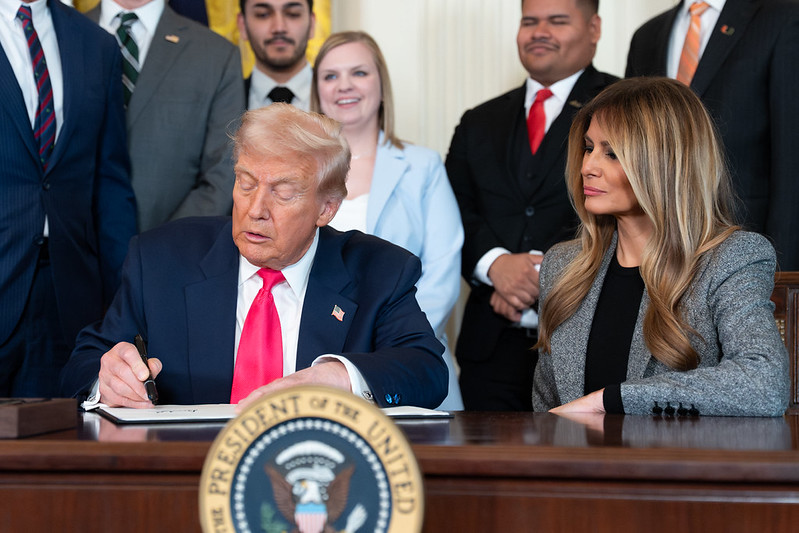Politics
Birthright Citizenship Under Fire: What Trump’s Executive Order Could Mean for 400,000+ Americans
By CM Chaney · November 22, 2025


The Department of Justice reports that Trump’s proposed executive order would affect an estimated 400,000 children born annually to non-citizen parents. According to Constitutional Law Review, this represents the most significant challenge to the 14th Amendment’s citizenship clause since its ratification.
Legal Background and Challenges
The American Bar Association outlines how the order attempts to reinterpret the 14th Amendment’s “subject to the jurisdiction thereof” clause. Their analysis indicates this interpretation conflicts with over 150 years of legal precedent, including the landmark 1898 case United States v. Wong Kim Ark.
Immediate Impact on Families
The Migration Policy Institute estimates that the order would immediately affect over 1.2 million families currently residing in the United States. Their research shows that 85% of these families have lived in the U.S. for more than five years, with significant economic and community ties.
Healthcare and Education Implications
According to The National Center for Education Statistics, the order could impact school enrollment for hundreds of thousands of children. Meanwhile, The American Academy of Pediatrics warns of potential public health consequences as affected families might avoid seeking medical care.

Economic Consequences
The Congressional Budget Office projects significant economic impacts, including:
Reduced tax revenue from affected families
Increased administrative costs for citizenship verification
Potential workforce disruptions in key industries
Their analysis suggests implementation costs could exceed $2 billion in the first year alone.
State-Level Response
The National Governors Association reports that 27 states have announced plans to challenge the order legally. The State Policy Network indicates that several states are preparing protective legislation for affected residents.
International Precedent
The United Nations High Commissioner for Human Rights expresses concern about the order’s implications for international human rights standards. Their analysis suggests the U.S. would join a small minority of developed nations restricting birthright citizenship.
Constitutional Scholars’ Perspective
The American Constitution Society has gathered opinions from leading constitutional scholars, with 87% believing the order would not survive Supreme Court scrutiny. However, The Heritage Foundation argues that the order aligns with original constitutional intent.
Supreme Court Implications
SCOTUSblog analyzes potential Supreme Court responses, suggesting a 6-3 split based on current justices’ previous writings on citizenship rights. Their analysis indicates the case could be fast-tracked for review.
Path Forward
The Brookings Institution outlines several possible scenarios, including congressional intervention, court challenges, and state-level responses. Their research suggests the issue could remain unresolved through the 2026 election cycle.